Innovation, Access Issues Dominate Biologics & Biosimilars Summit
April 19, 2018
“I thought maybe I wasn’t very good athletically.” That was iconic Olympic gold medalist Jackie Joyner-Kersee’s recollection of her first experience with asthma attacks.
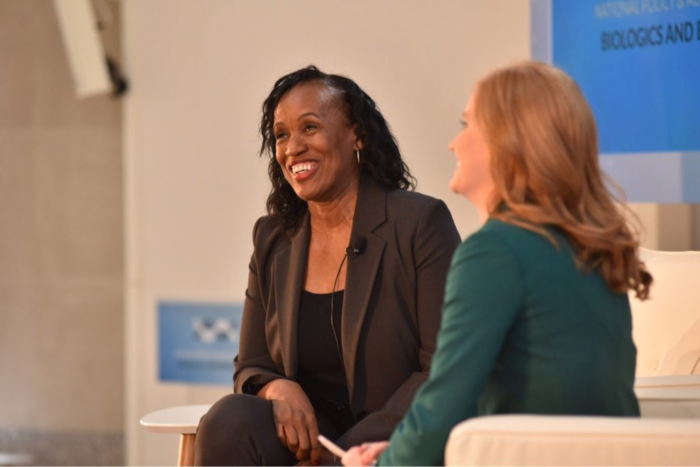
Joyner-Kersee shared her story at Tuesday’s third annual National Policy and Advocacy Summit on Biologics and Biosimilars. And while the anecdote drew laughter from the audience, her story underscored the importance of the program’s themes: the value of innovation, the power of treatment and the importance of patient access.
Held in Washington, DC, the event was sponsored by the Institute for Patient Access, the Alliance for Patient Access and the Biologics Prescribers Collaborative. Patients, government representatives, physicians and advocates explored a range of policy issues during the day-long event.
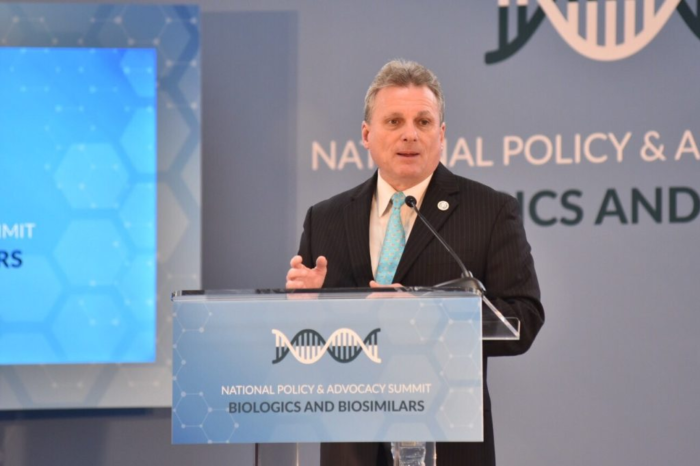
The question of biosimilar uptake loomed large. In an interview with AfPA Executive Director Brian Kennedy, the Food and Drug Administration’s Leah Christl, PhD, described the FDA’s education initiatives. “It’s not just enough to say, ‘trust us, we got this, [biosimilars are] different, and you don’t need to understand why,’” said Christl. “It’s really important to explain what we’re doing, how we’re doing it, and what we’re looking for in our scientific standards.” She also explored how federal policies could encourage uptake of biosimilars.
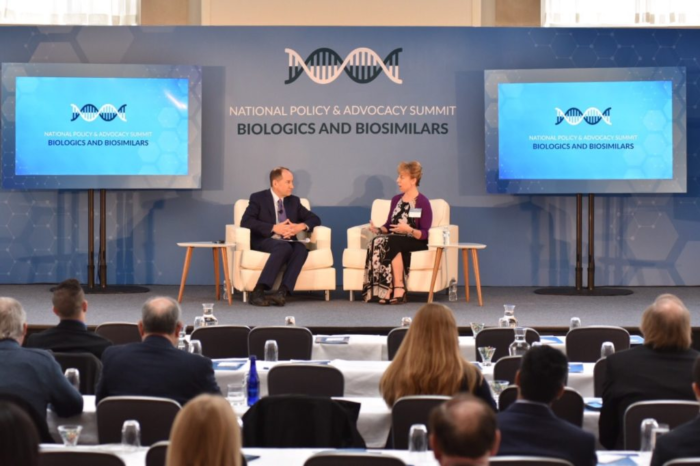
Several panels explored the day’s themes in depth. In a discussion on innovation, moderator and Alliance for Patient Access Chairman David Charles, MD, marveled at “breakthrough treatments,” “new diagnostics,” and “wearable devices that weave health care into people’s busy everyday lives.” The panelists provided their own insights:
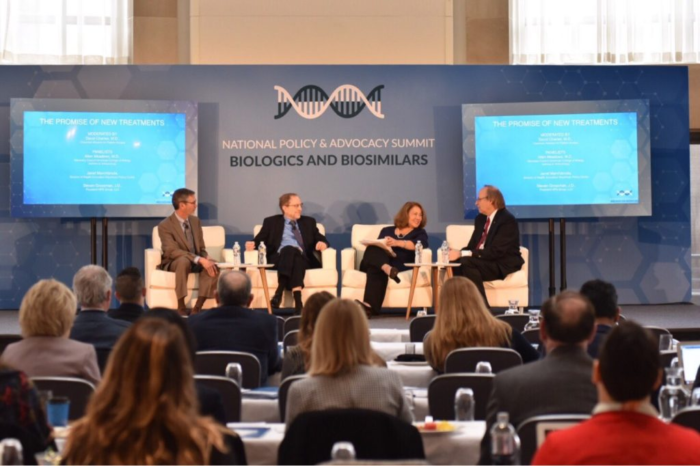
- Alan Meadows, MD, an allergist from Montgomery, Alabama and chair of the Alliance for Patient Access’ Respiratory Therapy Access Physicians Working Group, described how biological treatments have transformed care for his asthma patients. But patients are “having difficulty” accessing advanced treatments, Dr. Meadows explained.
- Steven Grossman, JD, highlighted the importance of more competition to improve the pricing and uptake of biosimilars. Alluding to the health care system’s experience with the first generic versions of traditional medications, Grossman explained, “Until you get about three players, you don’t get competition.”
- Janet Marchibroda of the Bipartisan Policy Center explained how patent policy impacts innovation and patients’ ability to benefit from an array of treatment options. The Bipartisan Policy Center recently issued a policy brief on the issue.
A second panel discussion explored how health care payment models impact patients’ ability to benefit from such innovation.
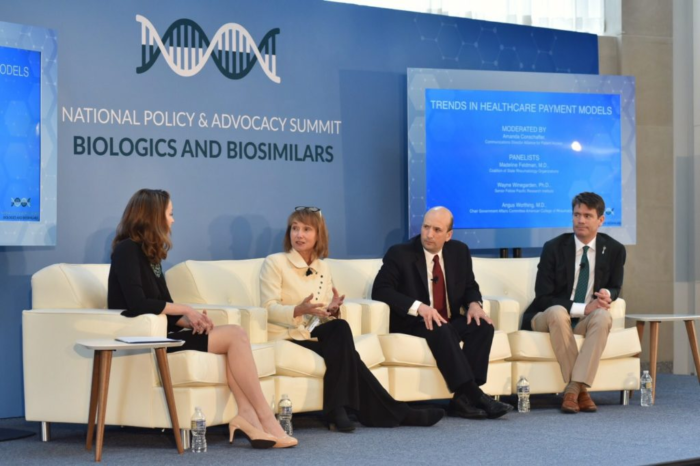
- Economist Wayne Winegarden, PhD, of the Pacific Research Institute walked the audience through the 340B drug pricing program, explaining how it’s diverged from its original intent. He also remarked on the impact of the Institute for Clinical and Economic Review, arguing, “”We can’t come up with one price that’s representative of all patients.”
- Rheumatologist Madeline Feldman, MD, examined the role of the pharmacy benefit manager and the potential impact of co-pay accumulator adjustment programs – or “deductible double dipping,” as Dr. Feldman coined the approach. Feldman is a member of AfPA’s National Physicians Biologics Working Group.
- Washington, DC-based advocate and rheumatologist Angus Worthing, MD, explained policymakers’ proposed changes to Medicare Part B, as well as state Medicaid waiver Both, Dr. Worthing noted, could impact patients’ ability to access treatment.
The day’s third panel highlighted advocacy efforts in state capitols across the country.
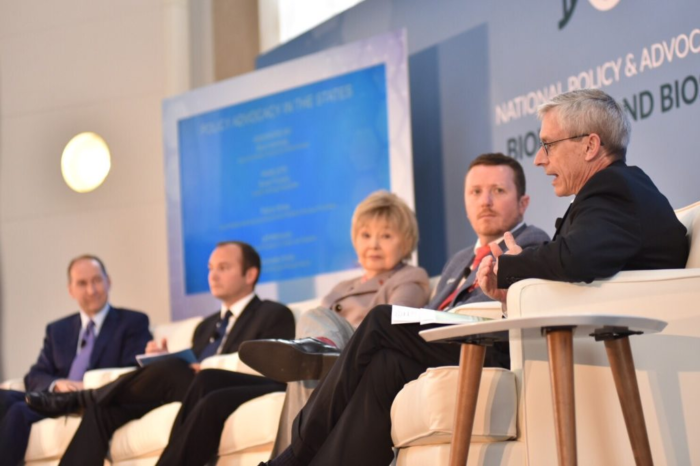
- Keep My Rx Director Derek Flowers described multi-state efforts to educate policymakers on the impact of non-medical switching. The Keep My Rx campaign champions policies that prevent health plans from discontinuing or reducing coverage for ongoing medications needed by their beneficiaries with chronic diseases.
- Patrick Stone of the National Psoriasis Foundation reflected on the progress made after several years of patient advocacy on issues such as step therapy, prior authorization and non-medical switching.
- Donnette Smith of Mended Hearts detailed her struggle with utilization management barriers, underscoring how health plans’ attempts at cost cutting can handicap patients’ treatment plans. “How can this guy who has never met me say ‘you don’t need this drug’?,” Smith asked, recalling repeated denials for her PCSK9 inhibitor
- Jeff Hitchcock of Children with Diabetes shared the organization’s recent research on how diabetes patients experience the impact of non-medical switching. Hitchcock, whose daughter has Type 1 diabetes, explained that “The importance of sharing your story cannot be underestimated.”
The day ended with remarks from AfPA Chairman David Charles, MD.
For related materials, see:
Social media: #BiologicsSummit2018
Video: Understanding Prior Authorization
Video: Understanding Non-Medical Switching
Categorized in: Blog

